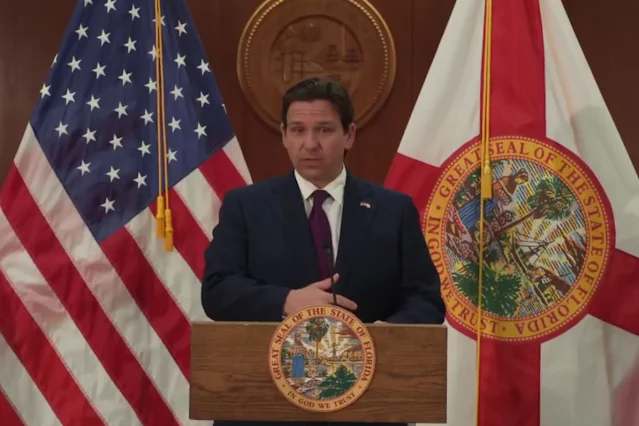Florida Homeless Law Takes Effect October 1
 |
| Florida Governor Ron DeSantis |
MIAMI BEACH, Florida - The new Florida law banning sleeping in public became effective October 1, 2024.
A U.S. Supreme Court ruling in City of Grants Pass v. Johnson gave a green light to a law signed by Florida Governor Ron DeSantis which bans homeless people from sleeping on city streets, sidewalks, and parks — and instead be placed in temporary shelters monitored by law enforcement agencies.
“Florida will not allow homeless encampments to intrude on its citizens or undermine their quality of life like we see in states like New York and California,” said Governor Ron DeSantis when he signed the law.
In addition to banning the homeless from sleeping on public spaces, the new law:
Gives the State of Florida enforcement powers to ensure that local governments comply with the ban.
Homeless shelters will require occupants to not use drugs,
These shelters will also include substance abuse and mental health treatments.
HB 1365 also provides alternatives for when homeless shelters have reached max capacity.
It directs the Department of Children and Families to authorize temporary campsites that do the following:
Maintain sanitation, including access to clean and operable restrooms and running water.
Provide access to substance abuse and mental health treatment resources through coordination with the regional managing entity.
Prohibit illegal substance use and alcohol use on the property and enforce this prohibition.
The U.S. Supreme Court held that the enforcement of generally applicable laws regulating camping on public property does not constitute “cruel and unusual punishment” prohibited by the Eighth Amendment.
"Sleep is a biological necessity, not a crime. For some people, sleeping outside is their only option," Justice Sotomayor wrote for the dissent.
"The City of Grants Pass jails and fines those people for sleeping anywhere in public at any time, including in their cars, if they use as little as a blanket to keep warm or a rolled-up shirt as apillow. For people with no access to shelter, that punishes them for being homeless. That is unconscionable and unconstitutional."
